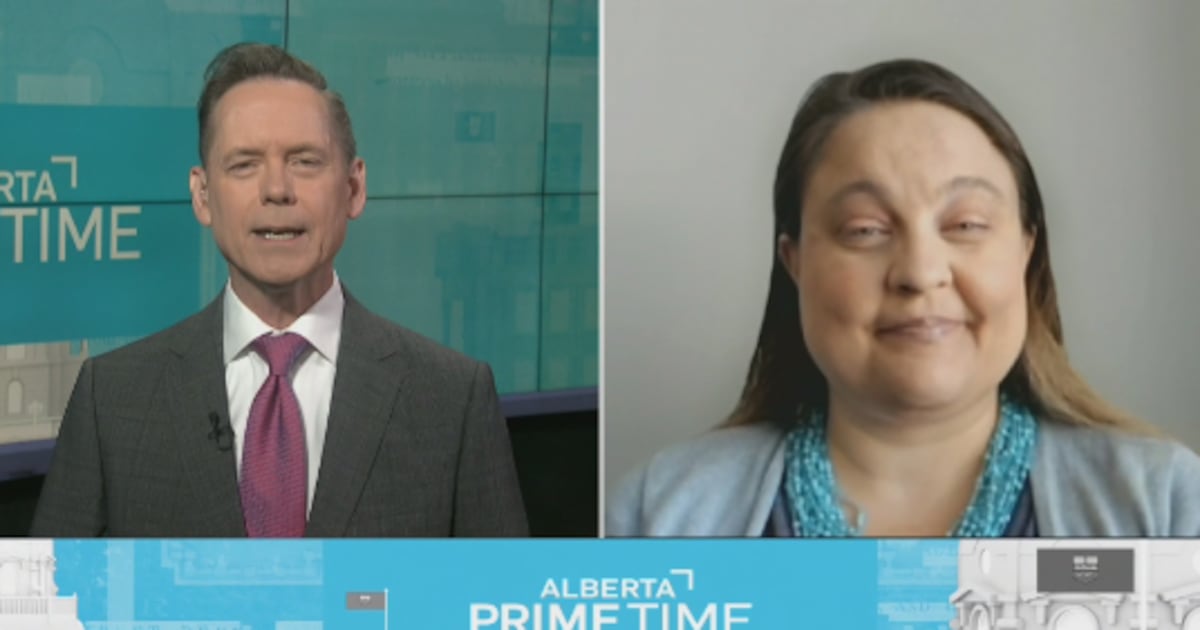Health
Health Expert Urges Broader COVID-19 Vaccine Access in Alberta

The recent decision by the United Conservative government of Alberta to allow health-care workers to receive COVID-19 vaccinations without cost has sparked a broader conversation about vaccine access in the province. Lorian Hardcastle, a health policy expert from the University of Calgary’s Faculty of Law and Cumming School of Medicine, discussed the implications of this policy shift during an interview with Michael Higgins on Alberta Primetime.
Policy Reversal and Its Impact
Hardcastle emphasized that the initial policy requiring individuals to pay for their COVID-19 shots would likely have led to decreased vaccination rates, particularly among price-sensitive populations. “The connection between health and wealth is significant,” she stated. “Reversing the cost for health-care workers is a positive step, as they frequently interact with vulnerable individuals.” Despite this change, she believes it remains inadequate, calling it a “public health misstep” not to extend free vaccination access to all Albertans who desire it.
The announcement of this new vaccination policy has faced considerable backlash since its unveiling in June. Hardcastle pointed to the growing influence of health-care workers in Alberta, noting their advocacy efforts likely contributed to the government’s decision to provide free vaccinations for this group. She expressed hope that continued public and healthcare professional pressure could lead to broader changes in policy.
Comparative Access and Future Recommendations
When comparing Alberta’s policy to national vaccination guidelines, Hardcastle noted that other provinces have not implemented a user-pay model. She warned that this approach could exacerbate existing disparities in vaccination rates. “Alberta already has lower-than-average vaccination rates for certain vaccines,” she said, citing rising measles cases linked to low immunization levels. “If access to the COVID-19 vaccine is limited, we may see increased pressure on emergency rooms due to preventable illnesses.”
The requirement for Albertans to pre-register for vaccinations by September 30 has raised concerns about accessibility. Hardcastle argued that health policies should aim to eliminate barriers rather than create new ones. “Requiring appointments and pre-orders may result in under-ordering doses, leaving many who want the vaccine without access,” she cautioned.
Currently, vaccines will only be available at public health clinics, which may further restrict access compared to pharmacies. Hardcastle highlighted that the convenience of pharmacy hours often makes it easier for individuals to receive vaccines. “If public health clinics are not widely available or accessible, many may choose not to pursue vaccination,” she explained.
Looking ahead, Hardcastle suggested that if the government expands its policy, it should prioritize vulnerable groups, such as those in congregate living situations or those with lower incomes. “Age and income-based exemptions could be essential in ensuring that those who cannot afford to pay for vaccines still have access,” she added.
The conversation around Alberta’s COVID-19 vaccination policy reflects broader public health challenges, highlighting the need for accessible healthcare solutions that prioritize the well-being of all citizens. As discussions continue, the role of advocacy from both health-care workers and the public will be crucial in shaping future policies.
-

 Education2 months ago
Education2 months agoBrandon University’s Failed $5 Million Project Sparks Oversight Review
-

 Lifestyle3 months ago
Lifestyle3 months agoWinnipeg Celebrates Culinary Creativity During Le Burger Week 2025
-

 Science3 months ago
Science3 months agoMicrosoft Confirms U.S. Law Overrules Canadian Data Sovereignty
-

 Health3 months ago
Health3 months agoMontreal’s Groupe Marcelle Leads Canadian Cosmetic Industry Growth
-

 Science3 months ago
Science3 months agoTech Innovator Amandipp Singh Transforms Hiring for Disabled
-

 Technology3 months ago
Technology3 months agoDragon Ball: Sparking! Zero Launching on Switch and Switch 2 This November
-

 Education3 months ago
Education3 months agoRed River College Launches New Programs to Address Industry Needs
-

 Technology3 months ago
Technology3 months agoGoogle Pixel 10 Pro Fold Specs Unveiled Ahead of Launch
-

 Technology1 month ago
Technology1 month agoDiscord Faces Serious Security Breach Affecting Millions
-

 Business2 months ago
Business2 months agoRocket Lab Reports Strong Q2 2025 Revenue Growth and Future Plans
-

 Science3 months ago
Science3 months agoChina’s Wukong Spacesuit Sets New Standard for AI in Space
-

 Education3 months ago
Education3 months agoAlberta Teachers’ Strike: Potential Impacts on Students and Families
-

 Technology3 months ago
Technology3 months agoWorld of Warcraft Players Buzz Over 19-Quest Bee Challenge
-

 Business3 months ago
Business3 months agoNew Estimates Reveal ChatGPT-5 Energy Use Could Soar
-

 Business3 months ago
Business3 months agoDawson City Residents Rally Around Buy Canadian Movement
-

 Education3 months ago
Education3 months agoNew SĆIȺNEW̱ SṮEȽIṮḴEȽ Elementary Opens in Langford for 2025/2026 Year
-

 Technology1 month ago
Technology1 month agoHuawei MatePad 12X Redefines Tablet Experience for Professionals
-

 Technology3 months ago
Technology3 months agoFuture Entertainment Launches DDoD with Gameplay Trailer Showcase
-

 Business3 months ago
Business3 months agoBNA Brewing to Open New Bowling Alley in Downtown Penticton
-

 Technology3 months ago
Technology3 months agoGlobal Launch of Ragnarok M: Classic Set for September 3, 2025
-

 Technology3 months ago
Technology3 months agoInnovative 140W GaN Travel Adapter Combines Power and Convenience
-

 Science3 months ago
Science3 months agoXi Labs Innovates with New AI Operating System Set for 2025 Launch
-

 Technology3 months ago
Technology3 months agoNew IDR01 Smart Ring Offers Advanced Sports Tracking for $169
-

 Technology3 months ago
Technology3 months agoDiscover the Relaxing Charm of Tiny Bookshop: A Cozy Gaming Escape










